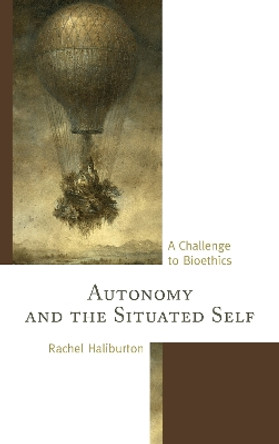Bioethics tells a heroic story about its origins and purpose. The impetus for its contemporary development can be traced to concern about widespread paternalism in medicine, mistreatment of research subjects used in medical experimentation, and questions about the implication of technological developments in medical practice. Bioethics, then, began as a defender of the interests of patients and the rights of research participants, and understood itself to play an important role as a critic of powerful interests in medicine and medical practice. Autonomy and the Situated Self argues that, as bioethics has become successful, it no longer clearly lives up to these founding ideals, and it offers a critique of the way in which contemporary bioethics has been co-opted by the very institutions it once sought (with good reason) to criticize and transform. In the process, it has become mainstream, moved from occupying the perspective of a critical outsider to enjoying the status of a respected insider, whose primary role is to defend existing institutional arrangements and its own privileged position. The mainstreaming of bioethics has resulted in its domestication: it is at home in the institutions it would once have viewed with skepticism, and a central part of practices it would once have challenged. Contemporary bioethics is increasingly dominated by a conception of autonomy that detaches the value of choice from the value of the things chosen, and the central role occupied by this conception makes it difficult for the bioethicist to make ethical judgments. Consequently, despite its very public successes, contemporary bioethics is largely failing to offer the ethical guidance it purports to be able to provide. In addition to providing a critique, this book offers an alternative framework that is designed to allow bioethicists to address the concerns that led to the creation of bioethics in the first place. This alternative framework is oriented around a conception of autonomy that works within the ethical guidelines provided by a contemporary form of virtue ethics, and which connects the value of autonomous choice to a conception of human flourishing.
About the AuthorRachel Haliburton is associate professor in the Department of Philosophy at the University of Sudbury. She has taught courses in bioethics for nearly twenty years.
ReviewsHaliburton here criticizes bioethics for relinquishing its critical stance for the 'status of a respected insider, whose primary role is to defend both existing institutional arrangements and its own privileged position.' She warns that 'if mainstream bioethics doesn't change its ideological ways, [and] refuses to risk its insider status ..., then it increasingly won't matter whether it exists at all.' . . . .This volume analyzes the situated self primarily through gender, given the author's feminist inspirations, but considers the implications such a self has for virtue ethics; narratives as culturally informing selfhood; the ethics of suffering; and bioethical practice that must consider political, economic, and social structures. Overall, Haliburton offers a refreshing, critical outlook on bioethics and its politicization. Summing Up: Recommended. Upper-division undergraduates and above; general readers. * CHOICE *
Book InformationISBN 9781498520966
Author Rachel HaliburtonFormat Paperback
Page Count 322
Imprint Lexington BooksPublisher Lexington Books
Weight(grams) 481g
Dimensions(mm) 229mm * 149mm * 24mm







